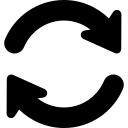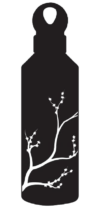2HandThouch
A Smart Kitchen System
Enables users to look up recipes, control the music and answer phone calls with on-skin gestures in kitchen
About
Hand-specific on-skin gestures (HSoS) use hands as an input surface that creates advantages when physical interaction with devices is limited (i.e. with dirty hands in the kitchen). However, literature lacks studies exploring HSoS from the user’s point of view, context-based user studies to uncover the potential problems of using HSoS, and considerations to guide the design of interactive products using this modality.
Principles
Our research process focuses on extracting user expectations from a gesture control system in the kitchen, designing a conceptual prototype meeting these expectations and conducting WoZ experiments for in-depth user evaluations. In total, 234 participants contributed to our research, which is a bigger than the current gesture studies’ sample size.

2HandTouch is a result of an iterative research through design process.

The aim is to understand the users’ intention to use HSoS controlled system in the kitchen, its perceived benefits for the users and their concerns towards adopting this system.
Project Members
Investigators
Oğuzhan Özcan
Aykut Coşkun
Tilbe Göksün
Yücel Yemez
Scholars
Ceylan Beşevli
Hüseyin Uğur Genç
In cooperation with
![]()
Related Publications
Related Publications
Pop-Machina
Collaborative production
For the circular economy; A community approach
About
The project Pop-Machina, funded by the European Union’s Horizon 2020 programme, engages organisations and communities from 7 different countries from 2019 to 2023 to demonstrate the potential of the maker movement and collaborative production for the EU circular economy.
We draw from a number of cut-edge technologies (factory-of-the-future, blockchain) and disciplines (urban planning, architecture) to provide the support necessary to overcome scaling issues; a typical drawback of collaborative production; to find the areas more in need of our intervention and to reconfigure unused spaces. We put forth an elaborate community engagement program to network, incentivize and stimulate through maker faires and events existing and new maker communities in all our municipalities. We build upon the current informal curriculum for maker skills development by nurturing the social side and we put educators and makers together to exchange ideas on the training modalities.
Partners

Project Members
Aykut Coşkun
Maria Laura Galleguillos
Related Publications
Related Publications
Knobie
A Smart Recipe Planner
which helps chefs to create novel dishes while aiming at sustainable food solutions
About
Food is an essential nutritional source for all humans, yet tons of food is wasted at an increasing rate each year. Although previous HCI studies examined this issue, most of this work focuses on the domestic context. To the best of our knowledge, no study explored the food waste in hospitality sector from a design perspective. Addressing this gap, we made observations in the high-end hotel restaurant kitchen and interviews with ten chefs to better understand the sources of food waste in restaurants.
Interviews
We conducted ten semi-structured interviews with seven chefs and three instructors of culinary arts. We chose to interview with chefs because they are the primary decision-makers during food preparations in the kitchens; in other words they are on the top of the kitchen hierarchy. They create recipes, manage the operations of the restaurants, lead the subordinates, and even, they may provide consultancy to people who want to set up a new restaurant about its concept and menu creation.
Field Study
We conducted two field observations in a high-end hotel restaurant in İstanbul. We chose a high-end hotel restaurant as they are the places having many actors involved in the scenario, suppliers, kitchen and customers. Then, we interviewed two executive chefs for approximately one hour. We probed the reasons for food waste, the strategies they use to deal with this waste and the influence of serving styles on food waste.
Related Publications
Related Publications
Hüseyin Uğur Genç, Mert Yıldız, Hakan Yılmazer, and Aykut Coşkun. 2019. Stop Wasting, Start Tasting! Design Speculations for Reducing Food Waste in The Hospitality Sector. In Companion Publication of the 2019 on Designing Interactive Systems Conference 2019 Companion (DIS ’19 Companion). ACM, New York, NY, USA, 171-176. DOI: https://doi.org/10.1145/3301019.3323880
Project Members
Hüseyin Uğur Genç, Mert Yıldız, Hakan Yılmazer, Aykut Coşkun
Grow
A Smart Bottle
Uses Its Surface as an Ambient Display to Motivate Daily Water Intake
About
Water is an essential nutrient for human health. However, individuals may ignore drinking enough water due to the rush of everyday life. A conceptual smart bottle prototype is designed to encourage users to drink water regularly. Our concept utilizes bottle surface as an ambient display instead of a traditional screen-based display to give feedback. Grow tracks daily water intake through an embedded liquid level sensor. It gives positive, abstract, nonintrusive and aesthetic feedback through heating up different parts of a thermo-chromic print on its surface (a tree image).
Principles
GROW gives positive, abstract, non-intrusive and aesthetic feedback through heating up different parts of a thermo-chromic print on its surface.

Grow provides unobtrusive feedback via thermochromic painted surface.

Water is an essential nutrient for human health.
Patent Pending
Project Members
Aykut Coşkun
Hüseyin Uğur Genç
Mert Yıldız
Hakan Yılmazer
Maria Laura Galleguillos
Deniz Erdoğan
Deniz Hepdoğan
Salih Berk Dinçer
Gül Kaner
Merve Yılmaz
Related Publications
Related Publications
Mert Yıldız, Deniz Hepdoğan, and Aykut Coşkun. 2019. Living Better with Water: Identifying Design Considerations for Products aimed at Motivating Regular Water Intake. IASDR 2019, Manchester, UK, 13 pages. DOI: upcoming
Gül Kaner, Hüseyin Uğur Genç, Salih Berk Dinçer, Deniz Erdoğan, and Aykut Coşkun. 2018. GROW: A Smart Bottle that Uses its Surface as an Ambient Display to Motivate Daily Water Intake. In Extended Abstracts of the 2018 CHI Conference on Human Factors in Computing Systems (CHI EA ’18). ACM, New York, NY, USA, Paper LBW077, 6 pages. DOI: https://doi.org/10.1145/3170427.3188521

